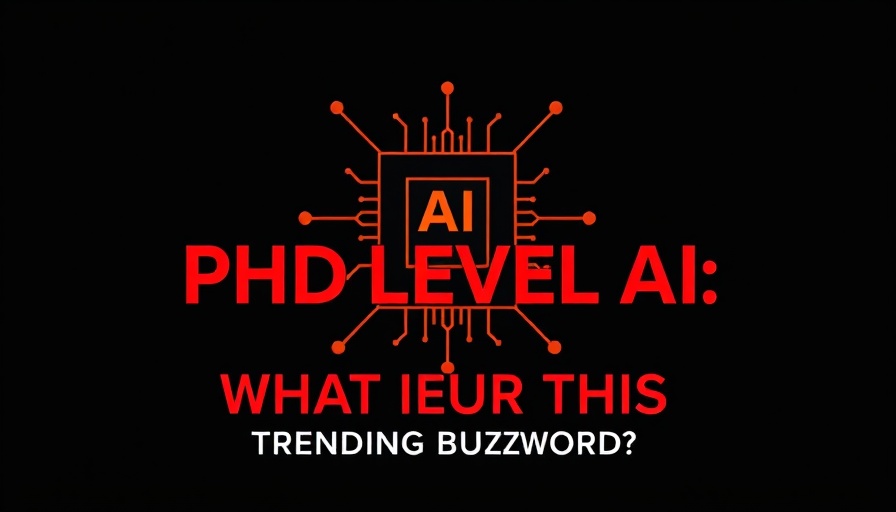
PhD-Level AI Agents: What's All the Buzz?
The term "PhD-level AI" has become a hot topic among tech executives and AI enthusiasts, especially following OpenAI's announcements regarding its new specialized AI agents. Priced at $20,000 per month for research capabilities, these agents aim to deliver results typically seen in research that demands years of academic training.
Cutting-Edge Capabilities and Innovations
OpenAI has stated that its models, known as o1 and o3, utilize a method dubbed the "private chain of thought." This innovative approach allows these agents to mirror the internal reasoning processes of human researchers. Instead of providing instantaneous responses like typical language models, these models perform internal dialogues, optimizing their analysis and problem-solving skills over time.
Performance Benchmarks: How Do They Compare?
When assessed on various benchmarks, the results are promising. The o1 model achieved scores comparable to those of PhD students on challenges in science, coding, and mathematics. For instance, the o3 model outperformed humans on several tests, including an impressive 96.7% score on the 2024 American Invitational Mathematics Exam. Such data has fueled optimism about the practicality of these advanced AI tools.
The Skepticism Surrounding PhD-Level AI
Despite the high expectations, there are critical voices that caution against the hype. Critics have branded the label "PhD-level" as mere marketing, questioning both the reliability of AI-generated research and the true capabilities of these models. Doubts persist regarding the AI's ability for innovative thinking and skepticism—traits fundamental to human researchers.
Cautionary Tales: Reliability and Accuracy Concerns
The potential risks associated with deploying such advanced AI remain a concern. Instances of AI 'hallucination'—where the model fabricates information—represent significant hurdles that must be overcome before these tools can be trusted for autonomous operation.
A Glimpse into the Future of AI Workforce Integration
The implications of PhD-level AI could be substantial. As the technology matures, it has the potential to tackle intricate tasks far beyond the reach of existing models. Envisioning a future where AI super-agents can handle complex analyses, solve multifaceted problems, and synthesize vast information could reshape various industries, especially in research, science, and logistics.
Guidance for Future Investors and Innovators
As AI tools evolve towards becoming indispensable in various domains, investors and industry leaders need to monitor these developments closely. Understanding the balance between the technology's promise and its current limitations will be key to leveraging its potential effectively and ethically.
How to Engage with the AI Revolution
For those interested in the AI landscape, staying informed about advancements, challenges, and discussions surrounding AI applications is crucial. Following industry updates, analyzing emerging trends, and considering responsible AI implementation strategies will help navigate this expanding field.
As we stand on the brink of what some are calling the "Intelligence Age," ensuring that discussions about AI are balanced and grounded in reality will be vital for fostering a constructive discourse among technologists, researchers, and the general public.
 Add Row
Add Row  Add
Add 




 Add Row
Add Row  Add
Add 

Write A Comment